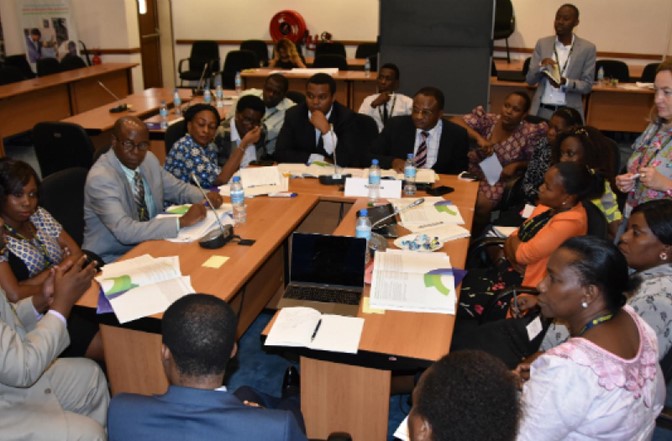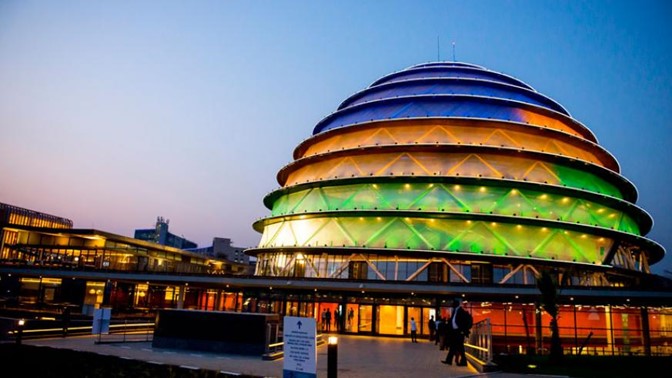Introduction
How do you want to start a $1 million business in East Africa, one of the fastest-growing and most diverse regions in the world? A business that can solve a real problem, create value, and make a positive impact on society and the environment. A business that can leverage the opportunities and overcome the challenges of the East African market, such as the rising population, urbanization, digitalization, and integration. A business that can scale, innovate, and compete in the global arena.
Sounds too good to be true? Well, it’s not. It’s possible, and it’s within your reach. Yes, everything is in this article. Read it to learn the steps you need to take to start a $1 million business in East Africa, from choosing a niche to developing a business plan, registering your business, and more. Are you ready? Get started now!
To begin a $1 million business in East Africa:
1. Understand the Business Landscape in the East Africa

To start a $1 million business in East Africa, understand the business landscape in the region. Identify gaps, trends, and underserved niches in East Africa.
Know that East Africa is a land where ancient traditions dance with modern aspirations and the sun-kissed savannas whisper tales of resilience and innovation. Also, it is the place where cultures collide and dreams flourish. Therefore, to get acquainted with the business terrain in the Eastern part of Africa, you must know about the countries that exist in the region, as well as the cultures, religions, and businesses that dominate each of the countries. Here is what you need to know:
- Kenya: This is the heartbeat of the savannah. In terms of culture, Kenya pulsates with rhythm—a symphony of Maasai warriors leaping high against the crimson sunset, Swahili melodies echoing through coastal towns, and Kikuyu elders sharing wisdom under ancient baobab trees. It’s a place where vibrant kanga fabrics sway to the beat of life. Understand that its religions include churches, mosques, and traditional shrines coexisting harmoniously. To set up your business in Kenya, choose Nairobi — the bustling capital, is a hub for tech startups, coffee exporters, and wildlife tourism. Imagine sipping a cup of Kenyan coffee while discussing blockchain innovations!
- Tanzania: Think of Tanzania as a Serengeti Dreams and Spice-Scented Breezes. Its cultures include the rhythmic footwork of Chaga dancers and the laughter of children playing bao—a traditional board game. Be aware that Islam and Christianity thrive here, but don’t overlook the ancient animist beliefs. To set up a business in Tanzania, know that Zanzibar’s turquoise waters lure tourists, while Dar es Salaam’s port buzzes with commerce. Spice farms, eco-lodges, and gemstone traders weave their stories into the fabric of Tanzanian life.
- Uganda: Uganda’s lush green hills cradle a mosaic of ethnic groups—Baganda, Bakiga, and Basoga—each with its dances, songs, and vibrant attire. In Uganda, note that Christianity and indigenous beliefs intertwine. When you think of viable businesses in Uganda, understand that coffee plantations thrive, and tech hubs emerge in Kampala. Gorilla trekking safaris draw adventurers, while the Nile River whispers secrets to those who listen.
Other countries that exist in East Africa are Rwanda, Burundi, and South Sudan. Note that these countries possess diverse cultures and intertwined religions that dance among Christianity, Islam, and Indigenous rites of the lands. In terms of their businesses, note that tea plantations thrive in Rwanda. Coffee, tea, and gemstone exports sustain the economy in Burundi, while oil reserves hold promise in South Sudan.
2. Explore Sectors With Growth Potential
To commence a $1 million in East Africa, explore sectors with growth potential. Remember that the fertile soil of East Africa is a place where opportunity blooms like the acacia trees against the savanna sky. Here are the possible opportunities you like to explore in the business atmosphere of East Africa.
- Agriculture: Do you know Africa’s agriculture sector, representing 15% of the continent’s GDP? It is like a dormant seed waiting for the right conditions. Despite having a quarter of the world’s arable land, it produces only 10% of global agricultural output. Imagine the harvests if you unlock this potential! However, note that you have to overcome challenges such as fragmentation, interdependence, and underinvestment.
- Infrastructure: You can dive into the construction business such as paving roads, rails, and ports. Imagine seamless highways connecting bustling cities, efficient railways transporting goods, and modern ports welcoming international trade. You can also dive into renewable energy projects such as solar, wind, and hydro—illuminate the path toward sustainable development. In addition, you may opt for the digital highway—fiber-optic cables, mobile networks, and e-commerce platforms—to bridge gaps and empower communities.
- Oil and Gas: Here is another venture you can dive into. Note that East Africa’s offshore waters hold promise. Discovering oil and gas reserves can fuel economic growth. You can engage in responsible extraction to ensure prosperity without harming the environment or local communities.
- Tourism: If you are a lover of nature and an adventurer, tourism is a perfect business for you. You can engage in a niche such as picture tourists in open Land Rovers, witnessing the Great Migration across the Serengeti. Wildlife, adventure, and cultural experiences which draw visitors. Others are beach escapes and eco-tourism.
3. Choose a Niche
To get started on a $1 million business initiative in East Africa, choose a niche. Choosing a niche can help you focus on your customers’ needs, preferences, and pain points, and differentiate yourself from your competitors. To choose a niche, you must:
- Identify your passions, skills, and expertise, and see how they can be applied to solve a problem or fill a gap in the market.
- Research the existing and potential demand for your niche, and analyze the size, growth, and profitability of the market.
- Evaluate the level and nature of the competition in your niche, and find out their strengths and weaknesses, as well as their strategies and tactics.
- Validate your niche by testing your product or service with real customers, and getting feedback on your value proposition, pricing, and marketing.
4. Develop a Business Plan
To commence a $1 million business project in East Africa, develop a business plan. Use a business plan to clarify your vision, mission, and objectives, and communicate them to your stakeholders, such as investors, partners, and employees. To develop a business plan, you must
- Define your target market, customer segments, and value proposition, and explain how you want to reach, acquire, and retain your customers.
- Describe your product or service, and how it can solve your customers’ problems or satisfy their needs or wants.
- Outline your revenue streams, cost structure, and profit margins, and project your financial performance and cash flow for the next few years.
- Identify your key resources, activities, and partners, and how they can support your business operations and value creation.
5. Register Your Business and Obtain Necessary Permits
To begin a business with a $1 million capital in East Africa, register your business and obtain the necessary permits. Registering your business and obtaining necessary permits can help you operate legally and comply with local laws and regulations. It can also protect your business name, intellectual property, and assets, and enable you to access various benefits and incentives, such as tax breaks, grants, and loans.
To register your business and obtain the necessary permits, you need to:
- Choose a suitable legal structure for your business, such as sole proprietorship, partnership, limited liability company, or corporation, and consider the implications for your liability, taxation, and governance.
- Register your business name and logo with the relevant authorities, and check if they are available and not infringing on any trademarks or copyrights.
- Apply for the required licenses, permits, and certifications, depending on the nature and scope of your business, such as trade, health, environmental, or professional licenses.
- Register for taxes and social security, and obtain a tax identification number and a social security number for your business and employees.
- Open a business bank account and a mobile money account, and set up your payment methods and systems.
6. Connect With Local Entrepreneurs
To set up a business with a $1 million investment in East Africa, connect with local entrepreneurs. This can help you learn from their experiences, insights, and advice, and gain access to their networks, resources, and opportunities. It can also help you build relationships, trust, and reputation in the local business community, and find potential customers, partners, mentors, or investors. To connect with local entrepreneurs, you must:
- Join and participate in local entrepreneurship organizations, associations, and clubs, such as the East African Business Council, the East African Women in Business Platform, or the East African Entrepreneurs Association.
- Attend and network at local entrepreneurship events, workshops, and conferences, such as the East Africa Startup Summit, the East Africa Innovation Summit, or the East Africa Entrepreneurship Forum.
- Follow and engage with local entrepreneurship media, blogs, and podcasts, such as the East Africa Business Times, the East Africa Startup Digest, or the East Africa Entrepreneurship Podcast.
- Reach out and introduce yourself to local entrepreneurs who are in your niche, industry, or stage of development, and offer to help, collaborate, or exchange ideas.
7. Choose a Suitable Location for Your Business Operations
To embark on a $1 million business opportunity in East Africa, choose a suitable location for your business operations. This is to boost your accessibility, visibility, and convenience for your customers, suppliers, and employees. It can also affect your costs, revenues, and risks, depending on the availability, quality, and price of the infrastructure, utilities, and services. To choose a suitable location for your business operations:
- Define your location criteria, such as the size, layout, and design of the space, the proximity and density of the market, the transportation and communication options, and the security and safety conditions.
- Research and compare different locations, such as urban, rural, or peri-urban areas, and different countries and cities in East Africa, and consider the advantages and disadvantages of each option.
- Visit and inspect the potential locations, and evaluate them based on your location criteria, as well as the feedback from your customers, suppliers, and employees.
- Negotiate and finalize the terms and conditions of the lease or purchase agreement, and ensure that they are fair, transparent, and flexible.
8. Create a Strong Brand
To kickstart a business valued at $1 million in East Africa, create a strong brand. Do this to attract, engage, and retain your customers, and differentiate yourself from your competitors. Define your brand purpose, vision, mission, and values, and how they align with your customers’ needs, wants, and aspirations.
Develop your brand name, logo, slogan, and story, and make sure they are memorable, meaningful, and consistent. In addition, design your brand identity, such as your colors, fonts, images, and sounds, and apply them to your product, packaging, website, social media, and marketing materials.
9. Implement Robust Accounting and Financial Management Systems
To initiate a $1 million business endeavor in East Africa, and implement robust accounting and financial management systems. Robust accounting and financial management systems are the processes and tools that help you record, monitor, and analyze your business transactions, performance, and position. Implementing robust accounting and financial management systems can help you manage your cash flow, budget, and expenses, and make informed and timely decisions.
10. Monitor Your Performance
To launch a $1 million business enterprise in East Africa, monitor your performance. Use this to measure, evaluate, and improve your business results and outcomes. Monitoring your performance can help you track your progress and success, identify and solve your problems and challenges, and optimize your strategies and actions.
To monitor your performance, define and select your key performance indicators (KPIs), such as the number of customers, the revenue, the profit, the customer satisfaction, or the market share, and how they relate to your goals and objectives. Also, collect and analyze your data, such as the sales, the costs, the feedback, or the ratings, and use them to calculate and compare your KPIs.
Recap
To start a $1 million business in East Africa, choose a niche that matches your passions, skills, and expertise, and has a high demand, low competition, and high profitability in the market. Develop a business plan that outlines your goals, strategies, and actions for your business, and communicates them to your stakeholders. Register your business and obtain the necessary permits that enable you to operate legally and comply with local laws and regulations.
Furthermore, connect with local entrepreneurs who can help you learn, network, and access various resources and opportunities in the local business community. Choose a suitable location for your business operations that has access to your target market, infrastructure, and resources, and offers a favorable cost, revenue, and risk balance. Create a strong brand that represents your business and its values, personality, and promise to your customers, and differentiates yourself from your competitors.
Finally, implement robust accounting and financial management systems that help you record, monitor, and analyze your business transactions, performance, and position, and make informed and timely decisions. Monitor your performance by measuring, evaluating, and improving your business results and outcomes, and tracking your progress and success.

















